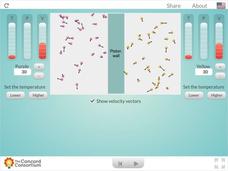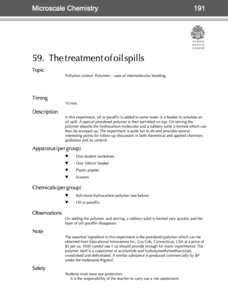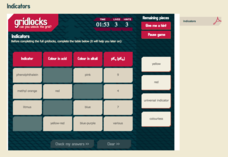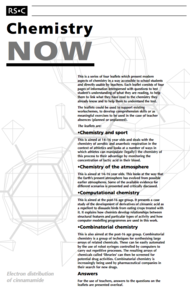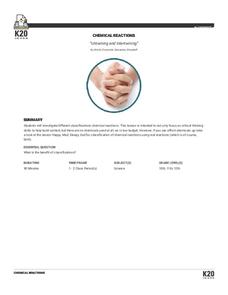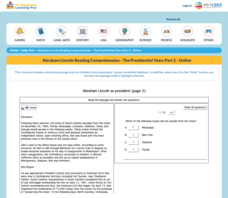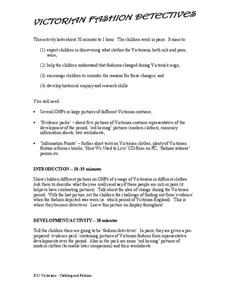Concord Consortium
The Volume-Pressure Relationship
Pressure and volume are in a relationship, but what is the nature of it? High school scientists discover the link between the volume of a gas and the pressure it exerts using a simulation. The resource tracks pressure in a sidebar as...
Concord Consortium
Pressure Equilibrium
All together now! Physical science pupils observe the effects of temperature and amount of substance on pressure and volume of a gas. The interactive resource guides learners through the Combined Gas Law, where they observe changing...
Concord Consortium
Boiling Point of Polar and Non-Polar Substances
Go to extremes to illustrate boiling point! Junior chemists explore the effects of heating and cooling on polar and non-polar substances. The interactive allows users to raise and lower the temperature, set specific temperatures, and...
Concord Consortium
Opposites Attract
Whether they pull together or push away from one another, magnets are sure-fire pupil pleasers! Take their study of magnetism to a new level with a fun interactive. Individuals control the polarity of two spheres to observe attractive or...
Royal Society of Chemistry
Mass Changes in Chemical Reactions—Microscale Chemistry
What better way is there to introduce conservation of mass than a few simple experiments? Young chemists conduct two chemical reactions, take the masses of reactants and products, then compare their results to determine differences in...
Royal Society of Chemistry
The Treatment of Oil Spills—Microscale Chemistry
When oil spills happen, how is the oil cleaned up? Pupils of polymer science discover an amazing substance that turns oil into a solid during a microscale experiment. Individuals observe oil or paraffin before and after addition of the...
Colorado State University
Why Are Clouds White?
Is it possible to change the color of clouds? A three-part activity explores the scattering of light by the water droplets that make up clouds. After observing a demonstration, curious scholars conduct their own investigations of the...
Colorado State University
What's the Difference Between Blue Light and Red Light?
Finally, an electromagnetic spectrum lab that will get glowing reviews from your class! Explore the nature of light using red and blue LED sources and fantastic phosphorescent paper. Young scientists compare the effects of blue light...
Royal Society of Chemistry
Indicators
How do chemists know what indicator solution is the perfect match for the acid or base they're studying? Discover a rainbow of indicator-related properties with an Internet resource. Individuals relate the indicator solution to its...
Royal Society of Chemistry
Computational Chemistry—Chemistry Now
Can some plants make their own animal repellents? Science sleuths examine the properties of cinnamamide in pear trees using an case study about computational chemistry. The resource discusses how vital computers are to research, how...
K20 LEARN
Transpiring Trees: Plant Transpiration and the Water Cycle
Looking for a tree-rific addition to your water cycle unit? Teams of young foresters examine the role of transpiration in the water cycle through a week's worth of activities. Pupils analyze how trees take in and transport water during...
K20 LEARN
Untwining And Intertwining: Chemical Reactions
What happened when the chemistry teacher told a bad joke? There was no reaction! A creative take on the traditional reaction types instructional activity invites learners to draw their own conclusions about how compounds and elements...
Chemistry Collective
Virtual Lab: DNA Binding Problem
Why do the bases in DNA pair up the way they do? Unravel the mystery of the double helix in a virtual lab. Young scientists follow in the footsteps of Watson and Crick to determine the free energy associated with DNA base pair binding....
Chemistry Collective
Virtual Lab: Creating a Buffer Solution
Buffers don't just magically appear in the stockroom when you need them! Give learners a crash course in buffer basics using an interactive lab assignment. Individuals are tasked with creating a buffer with a certain pH that will react...
Chemistry Collective
Virtual Lab: DNA - Dye Binding: Equilibrium and Buffer Solutions
Your class is bound to be fascinated by this virtual lab! Young biochemists explore molecules that bind to specific sites on the DNA molecule through a skillful simulation. The lesson challenges learners to create a DNA-bound solution...
101 Questions
Styrofoam Cups
How many cups does it take to reach the top? Learners attempt to answer this through a series of questions. They collect dimension information and apply it to creating a function. The lesson encourages various solution methods and...
Santa Monica-Malibu Unified School District
Parts of Speech Verbs: Building Blocks of Grammar
Pupils begin with a brain teaser, take notes, and formatively check understanding with a Chinese proverb. In addition to parts of speech, the resource also includes information about parts of a sentence. Teachers may extend instruction...
ReadWriteThink
Biography Project: Research and Class Presentation
I Have A Dream ... that after the lesson, all individuals master the reading, writing, researching, listening, and speaking skills the biography project helps them develop. Martin Luther King, Jr. serves as a topic example for a model...
Tutor 2 U
Plan for the Murder Solving Lesson
It's a classic case of whodunnit - with a forensic twist! Learners observe a crime scene and compile evidence, along with emergency phone calls, fingerprints, and interview statements to find the criminal and solve the crime.
Mr. Nussbaum
Abraham Lincoln Reading Comprehension—The Presidential Years (Part 2)
How does a president save a country from itself? Readers learn how the Civil War began and how Lincoln managed it with a reading comprehension passage. They then demonstrate their understanding with multiple choice questions that...
Newspaper Association of America
The News
Young journalists learn about topics such as newspaper ethics, parts of a newspaper, credible sources, and different types of articles. The lesson empowers individuals and gives them the capability to express their voices through the...
Albert Shanker Institute
Who Was Bayard Rustin?
Who was Bayard Rustin? Pupils analyze a series of primary source documents to learn about this important figure in the civil rights movement. The activity contains a short film to watch along with guiding questions and other resources...
101 Questions
Thanksgiving Taters
What would a meal be without the taters? The question is, how long does it take to peel those potatoes? Given the rate of peeling one potato, scholars predict the time it takes to peel the bag. The twist is that the first potato was...
Teaching Ideas
Victorian Fashion Detectives
The distinctive attire of royalty, working class, and peasants of the Victorian era conveys much about the conditions of the time. Learn more about why people dressed as they did, and how their fashion changed during the 64-year reign of...
Other popular searches
- Inquiry Based Learning
- Inquiry Based
- Scientific Inquiry
- Inquiry Based Cell Biology
- Life Science Inquiry
- Earth Science Inquiry
- Inquiry Based Physics
- Inquiry Lessons
- Science Inquiry
- Inquiry Based Science
- Environmental Inquiry
- Inquiry Based



